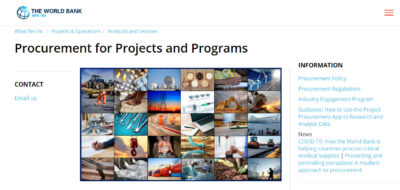
Waving Jamican Flag (Photograph by- John D. Mcdonald)
With public debt at 143% of GDP, Jamaica is one of the most highly indebted countries in the world. Jamaica has the third highest debt-to-GDP ratio, after Japan and Greece. Decades of low growth and high debt have led to persistently high poverty and unemployment as well as the departure of many Jamaicans for better opportunities abroad.
The IMF recently approved a 4-year loan agreement with Jamaica under which Jamaica will receive up to US$ 932 million. This will unlock additional funding from the World Bank and the Inter-American Development Bank of around $510 million each. Canada has promised to contribute to program financing by supplying technical and bilateral assistance. The IMF agreement aims to put Jamaica’s public debt on the path to dropping to 96% of GDP by the end of March 2020.
The history of Jamaica’s debt accumulation
The increase in the price of oil in 1973 greatly added to the cost of Jamaica’s imports. Jamaica borrowed from private banks in order to pay its overseas bills and its public debt grew.
In 1974, the People’s National Party (PNP) headed by Michael Manley promulgated democratic socialism in an effort to redress longstanding social inequalities, and this led to the flight of many in Jamaica’s business class as well as that of investment. The resulting high inflation, growing unemployment brought increased political violence and a large influx of guns fed rumors of a CIA effort to destabilize the socialist, Cuban-friendly Manley government. Jamaica’s inability to make ends meet forced Manley to reluctantly sign Jamaica’s first IMF agreement in 1977.

Jamaica Public Debt.
(Source: Bank of Jamaica, Fund Staff calculations)
Weary of the social and economic turmoil that Jamaica went through during Manley’s tenure, Jamaicans voted in 1980 to elect the Jamaica Labour Party (JLP) headed by Edward Seaga. Seaga’s government was US-friendly and favoured a free market, which brought an increase in bilateral and multilateral loans. By mid-decade, Jamaica’s debt had doubled.
After the rapid liberalization of Jamaica’s financial sector in the early 1990s, reckless overexpansion resulted in the failure of many financial institutions. The government absorbed their debts. Public debt doubled. Things worsened with the 2008 global financial crisis and the ensuing global recession.
Jamaica has had multiple agreements with the IMF since 1977, but has a poor record of program implementation. This was viewed by some as a sign of unwillingness or incompetence on the part of Jamaican governments. Others view this record as evidence that IMF targets were harsh and unrealistic.
The new agreement required a wage restraint agreement in the public sector. Jamaica’s previous agreement with the IMF went off-track in 2011 when the Jamaican government – following the ruling of the Industrial Disputes Tribunal – paid back wages to public sector workers.
Who is at fault – IMF or the politicians?
Whether or not the program is fully implemented, there remains the issue of whether the types of policies that the IMF promotes – liberalization, privatization, austerity – are appropriate for Jamaica. Some look back on the history of Jamaica’s relationship with the IMF and see evidence that these policies have not been successful.
“Jamaica is a big example of what we see across the Global South of how the IMF and World Bank policies have failed,” says Tim Jones of Jubilee Debt Campaign UK. “The liberalization that they imposed on Jamaica, which they were empowered to do because of the debt crisis that arose in the 1970s, undermined the Jamaican domestic economy as well as food production in the country. And that has made Jamaica even more dependent on foreign finance, and on risky areas like tourism that move with the global financial situation. It’s become less resilient and less able to deal with these global economic issues. The IMF and World Bank, the policies that they’ve pushed – trade liberalization, deregulation – helped push Jamaica into that situation.”
Policy failures are evident when you look at Jamaica’s recent history, according to Jake Johnston of the Washington-based Center for Economic and Policy Research. “Jamaican authorities have been pursuing policies that they see as pleasing to the IMF for the last couple of years, and what you’ve seen is the Jamaican economy actually slip back into recession. The unemployment rate continues to go up; the poverty rate has doubled in the last five years. You’re seeing the effects of what these policies lead to,” he said.
“You’ve seen what’s happening in Europe with the reaction to a debt crisis and a recession being cutting spending and continued austerity and you haven’t seen a recovery. And I think if anything that’s a terrific warning for Jamaica to not follow that same path.”
Others look back on Jamaica’s economic problems and see government mismanagement rather than unsuccessful IMF policies. “The IMF is neither Jamaica’s problem nor Jamaica’s solution,” says Dr. Damien King of the Caribbean Policy Research Institute and head of the department of economics at the University of the West Indies, Mona Campus. “Jamaica has underperformed the rest of the world very badly. And that tells us that the problem is internal. In other words, we have underperformed compared to similar countries under similar circumstances at the same time. So we have managed our affairs very badly. Austere adjustment is necessary.”
Reflecting on the public perception of the IMF in Jamaica, Dr. Michael Witter at the University of the West Indies wrote in a guest column in the Jamaica Gleaner newspaper that “It is temping to wonder whether the shift in public opinion in favour of the IMF and the inclination to blame ourselves for the failures of the agreements reflect a waning of the confidence with which Jamaica began its Independence. Many of yesterday’s critics of IMF-type policies are today endorsing them as critical for national survival.”
The choices – debt relief, an audit, austerity and tax reform
Does Jamaica have alternatives to the austerity prescribed by the IMF in dealing with its debt? Some call for debt relief for Jamaica, arguing that Jamaica’s debt burden is both unsustainable and unjust. In a recent issue brief, Johnston argues that multilaterals could better help Jamaica by cancelling Jamaica’s multilateral debt than by offering new loans. He states that of the $2 billion US in multilateral loans that Jamaica will receive over the next four years under the current IMF agreement, Jamaica will only receive a net cash flow of $346.1 million since $1.6 billion ends up going back to the multilaterals in repayments.

Young Jamaicans with the burden of debt (Photograph by- Josh Hunter)
Jones says that a debt audit – a process involving the establishment of a public commission to examine the legitimacy of a country’s debt – could help Jamaica to take on its debt. Debt audits have been helpful in several cases, notably in Ecuador. Ecuador’s 2008 debt audit gave President Correa the basis to default on some of Ecuador’s unjust debt and the debt ended up being written down.
King, on the other hand, does not think that Jamaica has alternatives to austere adjustment – either with or without the IMF. He points to the role of tax reform in transforming the Jamaican economy, saying that tax reform leads to three simultaneous improvements: addressing social equity more effectively, making tax evasion more difficult, and stimulating growth. “I call tax reform the low-hanging fruit, because it doesn’t involve a tradeoff. You get more revenue and you get more growth.”
In the end, the “unsustainable debt position is undermining investor confidence and increasing crisis risks,” as the IMF recognized in a recent assessment. There is broad agreement that a solution to Jamaica’s debt burden is needed if Jamaica is to attend to the needs of its population.
Author Stephanie Morais has degrees in philosophy and communication from McGill and Concordia universities. She also studied at the University of the West Indies and volunteered with the Blue Mountain Project in Jamaica. Research for this article was done in the summer 2013.


